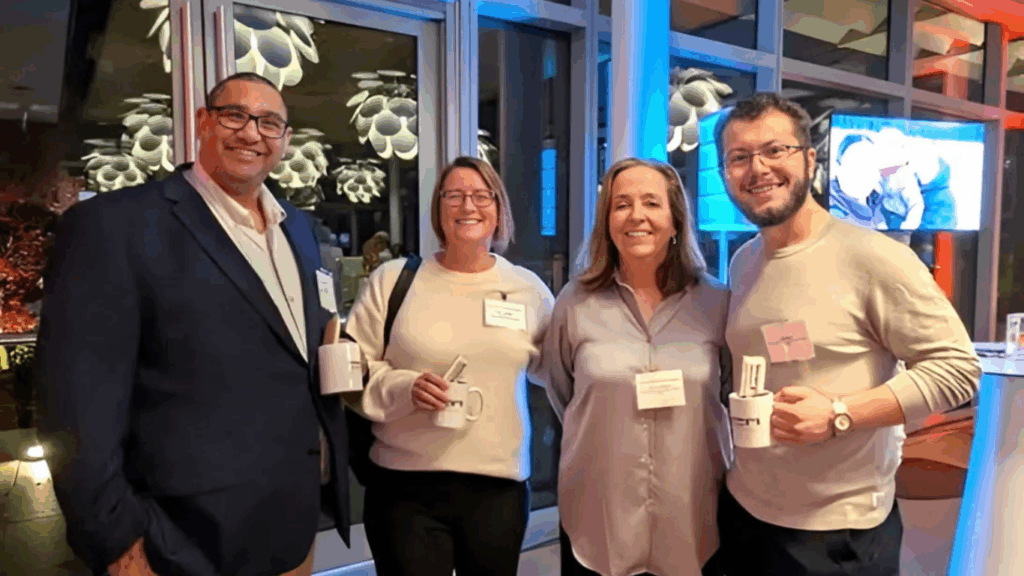In 2017, the Dave Thomas Foundation for Adoption released a ground-breaking new study of Canadian attitudes and behaviours towards adoption and foster care. The comprehensive document is packed with research and insights, but since it’s also almost 80 pages long, we’ve put together this brief overview of its key findings.
Canada loves adoption
Awareness of adoption is on the rise in Canada. That’s the key takeaway from the 2017 Canadian Adoption Attitudes Survey, released in October by the Dave Thomas Foundation for Adoption (DTFA). More and more Canadians are getting serious about adopting through foster care, and are coming to understand that every child is adoptable and needs a family.
The study’s researchers found that around half of Canadian adults know someone who was adopted through the foster care system, and that adults who have ties to adoption—whether personally or through friends or family—tend to be favourably disposed towards all types of adoption.
More interest in foster care adoption
This positive attitude is reflected in the study’s finding that nearly a quarter of Canadians are considering adopting a child—a significant increase from 2012.
The study also found an increase in Canadians’ positive opinion of adoption from foster care. More than seven in ten Canadians who are considering adopting from foster care said that they’re motivated by the desire to help a child in need. Over half say it’s due to their understanding and awareness of the need for adoption from foster care.
Nearly three in ten Canadians are considering becoming foster parents in order to help a child in need, and many more are becoming aware of the need for foster parents in their community. This is encouraging news for the many foster children in our country who are waiting for permanency.
Adults who are considering adoption tend to be younger and more diverse than adoptive parents of the past, and they tend to already have children. Most potential adoptive parents still want to adopt an infant or a younger child; however, the majority have no preference about the child’s gender or race.
Barriers to adoption
Financial concerns continue to be the major barrier to foster care adoption. Canadians mistakenly believe that foster care adoption is expensive and/or difficult, and these perceptions have dramatically increased since the 2012 study. However, those surveyed also indicated that if financial supports were available, they would be more likely to pursue adoption.
In fact, there are already many financial supports available to parents who adopt from foster care. It’s clear that there is a continued need for increased public awareness and education regarding these sources of support.
Many Canadians also believe that children in foster care suffer from abuse, abandonment, or neglect before and after entering care, and that those experiences negatively impact their adoptability.
The Internet is #1 for adoption information
The study found that more and more adults are going online for adoption information and services. Here in BC, the provincially mandated adoption education program for prospective adoptive parents is delivered online. A wide variety of e-courses, webinars, videos, articles, and support services are also available through AFABC’s website for anyone seeking more information about adoption. AFABC also runs multiple Facebook support groups that provide supportive online communities for adoptive and pre-adoptive parents.
Since familiarity with foster care adoption is still low among Canadians—as low it was in 2012—there is still plenty of opportunity to use the Internet to promote adoption awareness.
Keep advocating for kids
Overall, this study shows that Canadians are becoming more educated about and interested in adoption. There’s still work to be done to increase awareness and understanding of the large number of Canadian foster children waiting for forever homes. However, it’s encouraging to know that more Canadians are considering the option of building their families through adoption. Hopefully these positive trajectories will continue, and we’ll see these numbers increase yet again in the next survey.
Hannah Ganong is the Adoption Key Worker for South Vancouver Island and the Gulf Islands from Chemainus south. Hannah is a new mom and has a lifelong connection to adoption.





